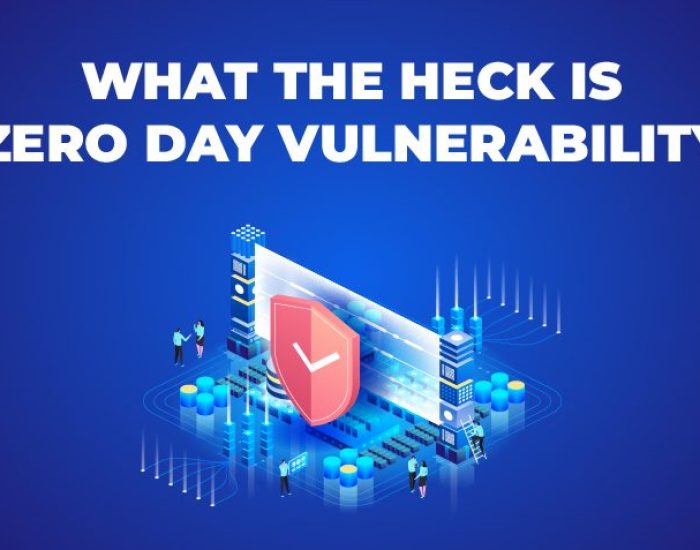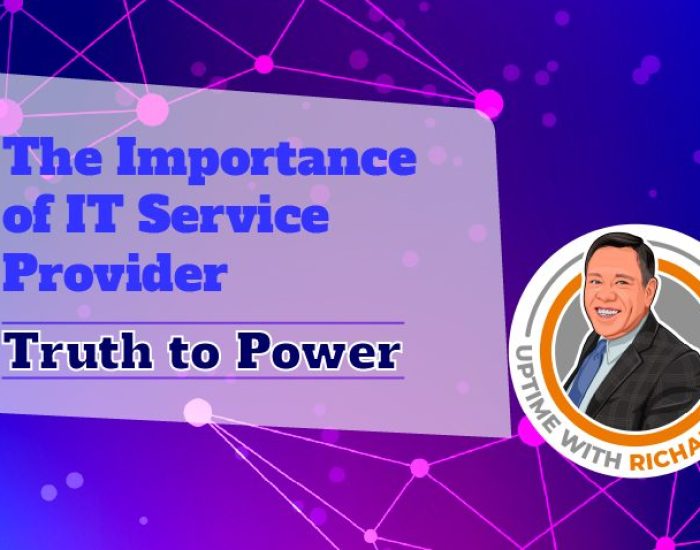The Cybersecurity Minute: How to Prevent a Cyber-attack
As technology becomes increasingly intertwined with our lives, the need for cybersecurity becomes ever more essential. Cyber-attacks are becoming increasingly common, with hackers and other malicious actors looking to exploit any vulnerability. It’s important to take the steps necessary to protect your data and ensure that your business or organization remains safe and secure.
Welcome to another video in The Cybersecurity Minute series. Today in Uptime with Richard Luna, we’ll discuss the various cybersecurity threats and the steps you can take to prevent a cyber-attack.
Cybersecurity Threats
When it comes to cybersecurity, it’s essential to understand the various threats. These threats come in many forms, from malicious software to phishing attacks and unauthorized data access.
Data breaches are also a significant concern. A data breach is when unauthorized actors access sensitive data, such as personal or financial information. These breaches can result in data loss and severe repercussions for an organization or individual.
Steps to Secure Your Data
Now that we’ve discussed the various threats let’s look at some of the steps you can take to protect your data.
- Establish a firewall- A firewall is a security system that prevents unauthorized access to a system. It can filter out malicious traffic and block access to certain websites or services. The firewall should be set up correctly and regularly monitored to ensure it works effectively.
- Isolated backups- Backups are a great way to protect your data in case of a breach or other disaster. By isolating the backups, you can ensure they are not accessible to unauthorized users. This will help to protect your data in the event of a breach.
- Enable multi-factor authentication- MFA adds an extra layer of security to a system. It requires users to enter a code sent to their mobile phone or another device in addition to their username and password. This helps to ensure that only authorized users are accessing the system.
- Monitor user access- It’s important to track who is accessing the system and what they are doing. This can help identify any suspicious activity and alert you to potential security threats.
Who do Cyberattackers target?
Cyberattackers frequently target critical industries such as healthcare, government, non-profits, and finance, leveraging their vulnerabilities for financial gain or to steal sensitive data. Cyber threat prevention in these sectors is critical as attackers exploit weak spots to cause disruptions. Healthcare organizations, for instance, are prime targets due to their access to vast amounts of personal data. The critical nature of healthcare infrastructure makes these organizations more likely to pay ransom demands quickly to restore operations and prevent data breaches.
Beyond healthcare, government agencies are high-value targets. Cybercriminals aim to access confidential information such as social security numbers and classified data, making identity theft prevention a top priority for these entities. Similarly, non-profits face risks due to their financial data from donors and fundraising efforts. In the finance sector, banks and insurance companies are under constant threat of extortion and theft, given their direct access to significant monetary resources.
To combat these threats, organizations should prioritize user awareness training to educate employees on recognizing potential threats and prevent phishing attacks. Phishing, brute force, and social engineering attacks are common methods used to exploit vulnerabilities. By adopting robust security measures and raising awareness, organizations can enhance their defenses and protect their operations from these escalating risks.
Conclusion
Securing your data is essential for effective cybersecurity. It’s important to understand the various threats and take the necessary steps to protect your data. Establishing a firewall, creating isolated backups, enabling multi-factor authentication, and monitoring user access are all essential steps for effective cybersecurity.
Protected Harbor offers comprehensive data protection and security solutions to protect your critical data and systems from cyber threats. Partner with us to enjoy round-the-clock security monitoring, advanced threat detection, and automated alerts to resolve any issues quickly. With our help, your organization can focus on its core mission without worrying about data breaches or cyber-attacks.
Keep watching the video and other resources to stay safe. Contact us today for a free cybersecurity assessment.





